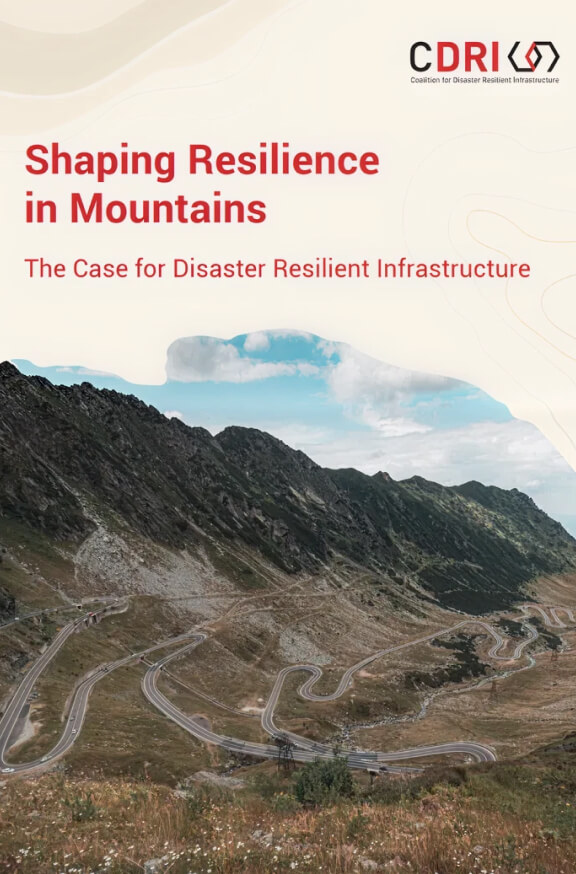The Case for Disaster Resilient Infrastructure
Mountains, covering 27% of Earth and home to 1.2 billion people, are vital for biodiversity and water security but face severe climate-induced hazards like floods, landslides, and glacial lake outburst floods. Their fragile ecosystems, remoteness, and limited infrastructure amplify vulnerability, making disaster resilient infrastructure (DRI) essential for survival and connectivity.
The report by CDRI emphasizes integrating technological innovations, ecosystem-based adaptation, and Indigenous knowledge to design resilient systems. It highlights cascading risks, governance gaps, and financing challenges, calling for multi-hazard risk-informed planning, inclusive policies, and sustainable maintenance.
Strategic pathways include early warning systems, gender-responsive approaches, and diversified financing through public-private partnerships and climate funds. Case studies worldwide demonstrate scalable solutions combining engineering and nature-based strategies. Collective action is urgent to safeguard lives, livelihoods, and ecosystems in mountain regions amid accelerating climate change.
Partenaires
- Global Mountain Safeguard Research (GLOMOS) programme
Le saviez-vous ?
- Mountain regions face severe climate hazards, threatening fragile infrastructure systems.
- Disaster resilient infrastructure ensures continuity of essential services during crises.
- Indigenous knowledge and ecosystem-based adaptation complement modern engineering solutions.
- Multi-hazard risk assessments must guide planning and investment in mountains.
- Financing resilience requires public-private partnerships and innovative climate funding mechanisms.
- Collective action is urgent to safeguard lives, livelihoods, and ecosystems.






